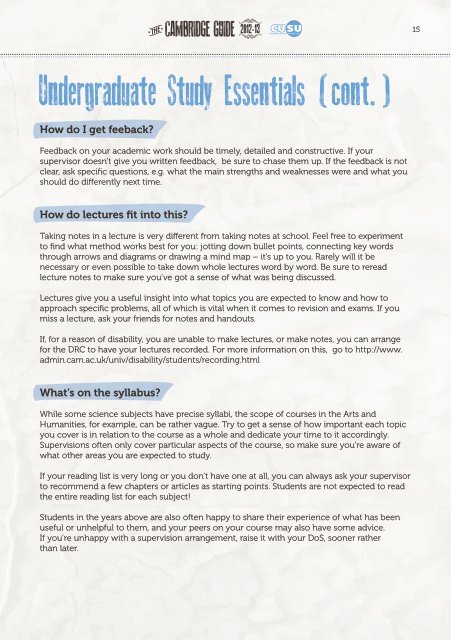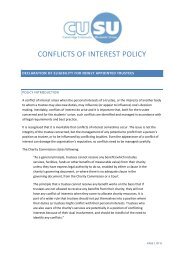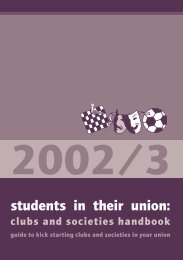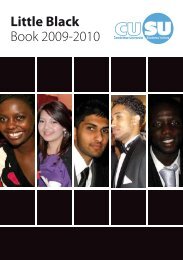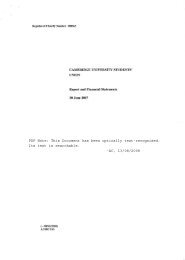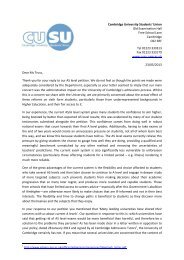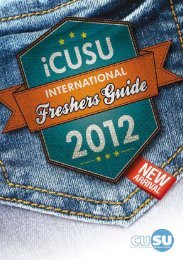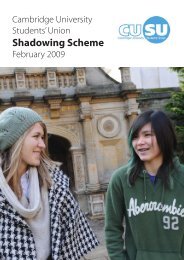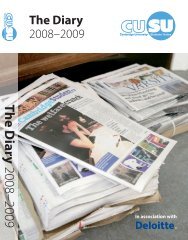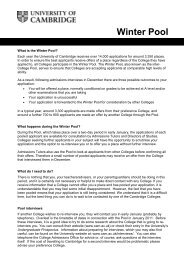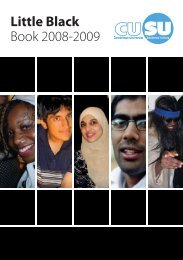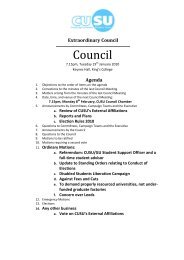The Cambridge (Survival) Guide - Cambridge University Students ...
The Cambridge (Survival) Guide - Cambridge University Students ...
The Cambridge (Survival) Guide - Cambridge University Students ...
You also want an ePaper? Increase the reach of your titles
YUMPU automatically turns print PDFs into web optimized ePapers that Google loves.
15Undergraduate Study Essentials (cont.)How do I get feeback?Feedback on your academic work should be timely, detailed and constructive. If yoursupervisor doesn’t give you written feedback, be sure to chase them up. If the feedback is notclear, ask specific questions, e.g. what the main strengths and weaknesses were and what youshould do differently next time.How do lectures fit into this?Taking notes in a lecture is very different from taking notes at school. Feel free to experimentto find what method works best for you: jotting down bullet points, connecting key wordsthrough arrows and diagrams or drawing a mind map – it’s up to you. Rarely will it benecessary or even possible to take down whole lectures word by word. Be sure to rereadlecture notes to make sure you’ve got a sense of what was being discussed.Lectures give you a useful insight into what topics you are expected to know and how toapproach specific problems, all of which is vital when it comes to revision and exams. If youmiss a lecture, ask your friends for notes and handouts.If, for a reason of disability, you are unable to make lectures, or make notes, you can arrangefor the DRC to have your lectures recorded. For more information on this, go to http://www.admin.cam.ac.uk/univ/disability/students/recording.htmlWhat’s on the syllabus?While some science subjects have precise syllabi, the scope of courses in the Arts andHumanities, for example, can be rather vague. Try to get a sense of how important each topicyou cover is in relation to the course as a whole and dedicate your time to it accordingly.Supervisions often only cover particular aspects of the course, so make sure you’re aware ofwhat other areas you are expected to study.If your reading list is very long or you don’t have one at all, you can always ask your supervisorto recommend a few chapters or articles as starting points. <strong>Students</strong> are not expected to readthe entire reading list for each subject!<strong>Students</strong> in the years above are also often happy to share their experience of what has beenuseful or unhelpful to them, and your peers on your course may also have some advice.If you’re unhappy with a supervision arrangement, raise it with your DoS, sooner ratherthan later.


